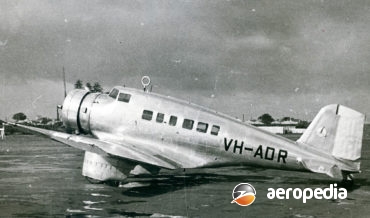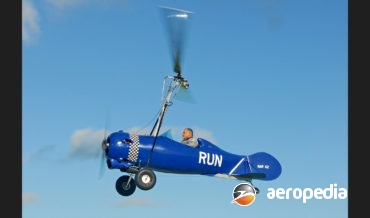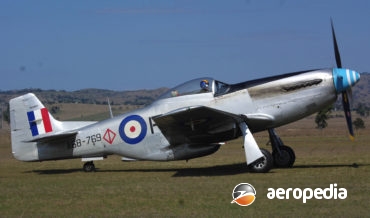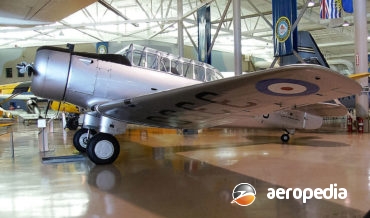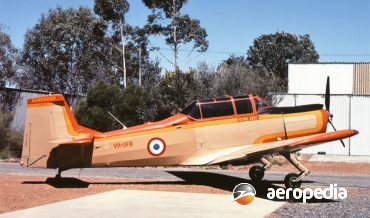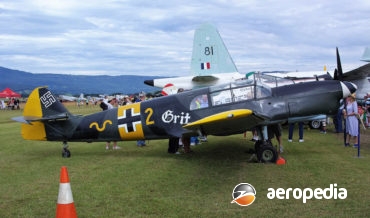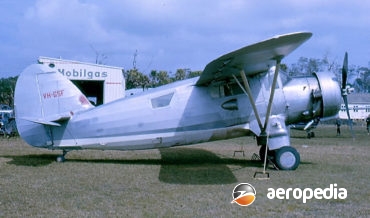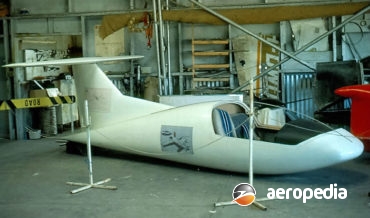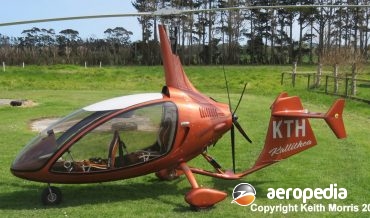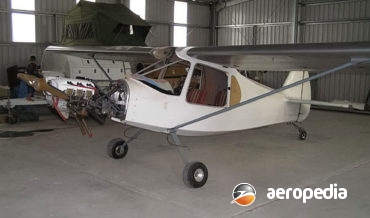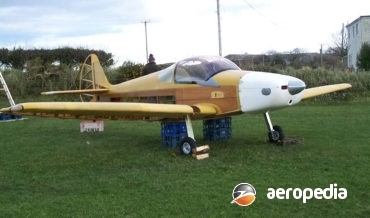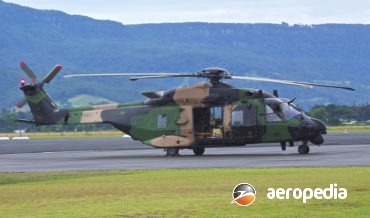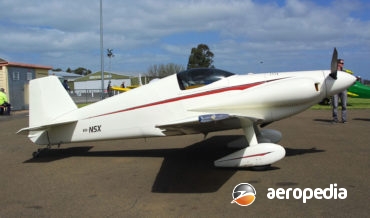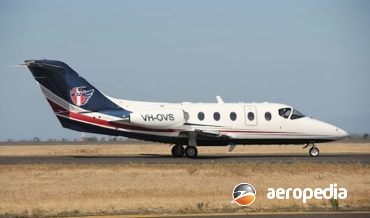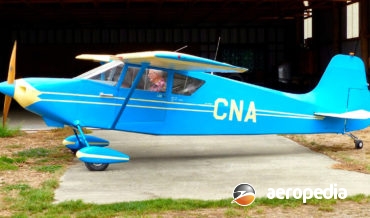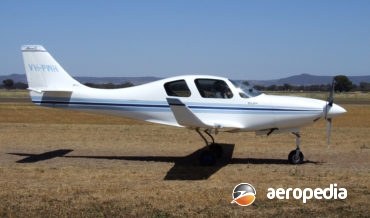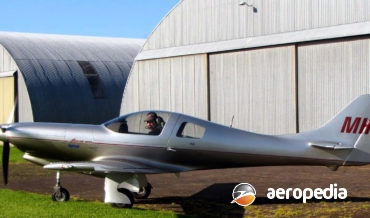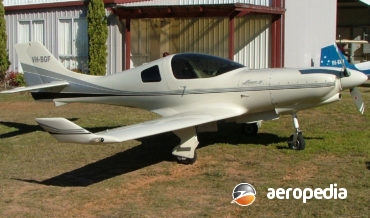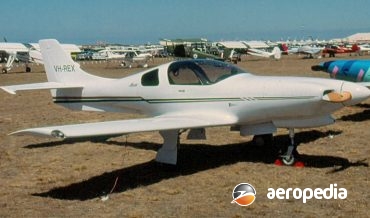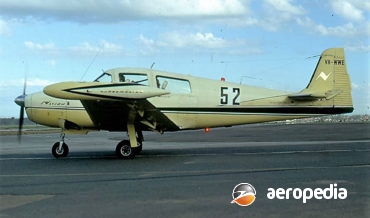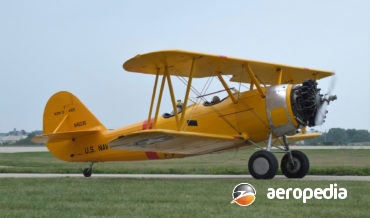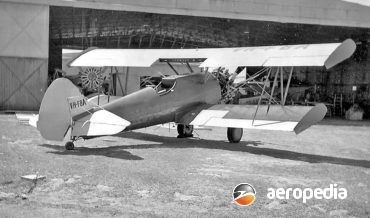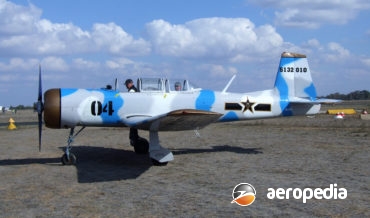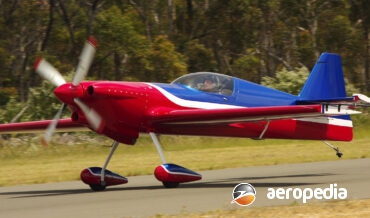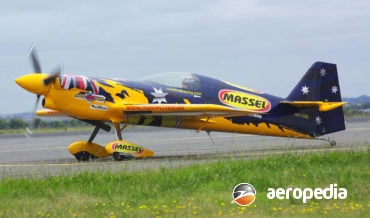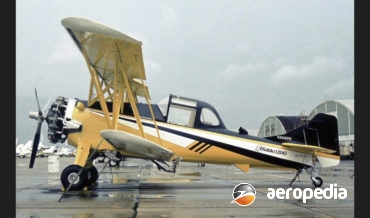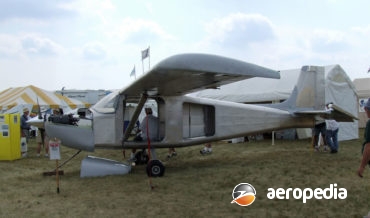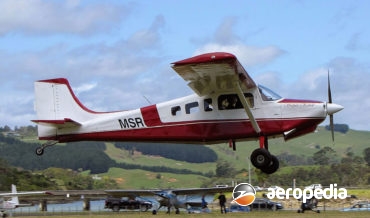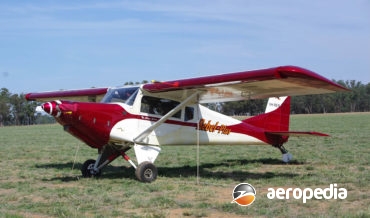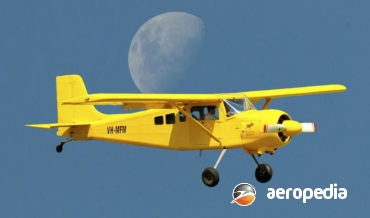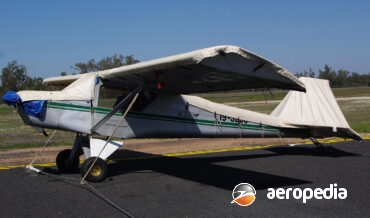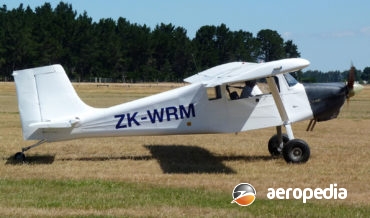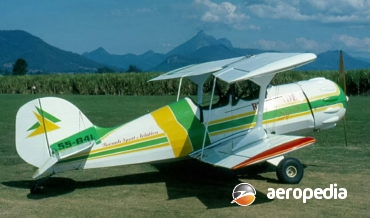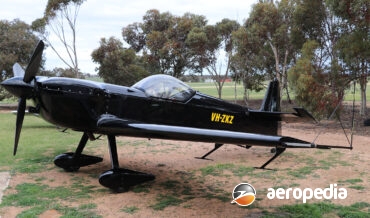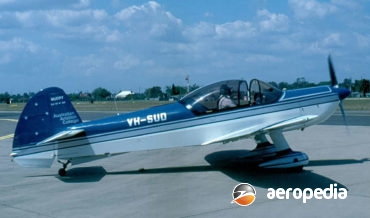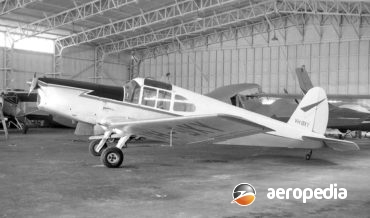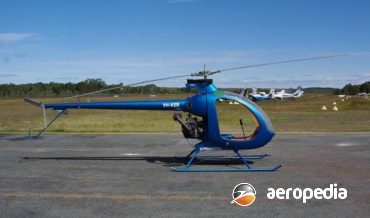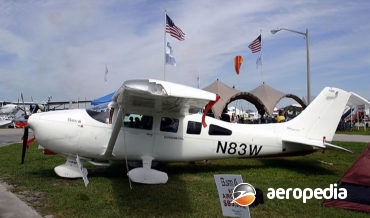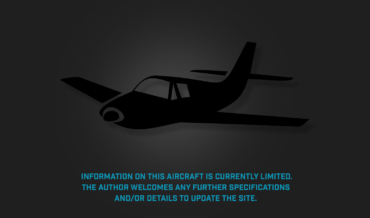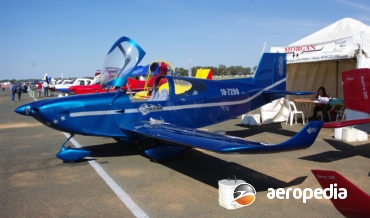All Contents
Contents
The Northrop Delta 1-D was produced in 1935 as an eight passenger derivative of the Northrop Gamma 2-D of 1933. The Delta was an advanced airliner for its time and used the same wing and undercarriage as the Gamma but was fitted with a larger fuselage to accommodate the passengers.
David C. Eyre
- May 8, 2019
Following the introduction in the United Sates of US FAR 103 regulations for Ultralight Vehicles, a number of companies produced ultra-light aircraft to the market which complied with these regulations, one of these being the Pitbull gyrocopter.
David C. Eyre
- May 8, 2019
The history of the design and development of the Mustang is well known and documented and is too long to deal with here.
David C. Eyre
- May 8, 2019
The North American NA-64 was a low-wing monoplane fitted with a Wright radial engine aimed at the advanced trainer market and was ordered for the French Armee de l’Air and the French Aeronavale, eventually seeing extensive service with the Royal Canadian Air Force and the German Luftwaffe, the latter using
David C. Eyre
- May 8, 2019
The Nord 3202 was manufactured by SNCA du Nord in France as a two-seat primary trainer for use as standard equipment at schools of the Aviation Legere de l’Armee (ALAT), replacing the Stampe SV-4 biplane.
David C. Eyre
- May 8, 2019
The Nord 1002 Pingouin devolved from the Messerschmitt Bf 108 (which see). Following the invasion of France, a decision was made by the German RLM (State Ministry of Aviation) to transfer production to the SNCA de Nord facility at Les Mureaux to free up production facilities in Germany for fighter
David C. Eyre
- May 8, 2019
The Norseman was developed by Noorduyn Aviation Ltd Ltd, this company being founded by Robert Bernard Cornelius Noorduyn in 1938 after his former company, Noorduyn Aircraft Ltd, was re-organised.
David C. Eyre
- May 8, 2019
The Opal was a light sporting aircraft designed by Ross Nolan, an aircraft engineer and designer and was described by him to the Press by means of the Melbourne Age in 1982 as ‘the plane of the future”.
David C. Eyre
- May 8, 2019
The Kallithea is a high-performance sporting gyrocopter produced by Niki Rotor Aviation at Pravets in Bulgaria, the company specialising in the design, development and manufacture of autogyros and makes them available to interested parties in kit form for construction by amateur builders. It has developed and marketed a number of
David C. Eyre
- May 8, 2019
The Pilatus is a high-wing two-seat in tandem light sporting aircraft with a tailwheel undercarriage designed and partially built by David Nightingale in Sydney, work commencing in about 2009 but was not finished.
David C. Eyre
- May 8, 2019
The Menestrel family of light sporting aircraft was designed by Henry Nicollier in France as a low-wing, single-engine, light aircraft for amateur construction. This family of aircraft included both single-seat and two-seat variants.
David C. Eyre
- May 8, 2019
The NH-90 has been developed by NH Industries, a consortium set up by France, Germany, Italy and The Netherlands, comprising Eurocopter, Agusta Westland and Stork Fokker Aerospace, to produce a medium sized utility helicopter for the armies and navies of those countries. The design was initiated by Britain, France, Italy
David C. Eyre
- May 8, 2019
The Nexus Mustang was designed by Richard Eaves of London, Ontario, Canada, who commenced building homebuilt aircraft in 1962. After building a Corben Baby Ace and a Bushby Mustang, and visiting an EAA event at Oshkosh, he decided to build an aircraft of his own design which suited his requirements.
David C. Eyre
- May 8, 2019
In recent years Nextant Aerospace of Cleveland, Ohio, has been re-manufacturing Beech 400 business jets. The company was founded in 2007 and was the first company to introduce the concept of re-manufacturing business jets.
David C. Eyre
- May 8, 2019
The Cougar I was designed by Robert Nesmith in 1957 and is similar in configuration to the Wittman Tailwind, the designer being of the view the latter type could ‘stand a little improvement”.
David C. Eyre
- May 8, 2019
One of the new breed of modern light high-performance kitplane homebuilts, the Lancair series has been developed over the years ito a number of models, the Lancair IV being released to amateur constructors in 1990. In 1991 a Lancair IV set a world speed record from San Francisco to Denver,
David C. Eyre
- May 8, 2019
The Lancair 360 is a development of the earlier 200, 235 and 320 series and has optional wingtip extensions that increase wingspan from 7.16 m (23 ft 5 in) to 8.3 m (27 ft 2 in).
David C. Eyre
- May 8, 2019
Following the success of the Lancair 235 series, the manufacturer introduced a larger fuselage, increased flap effectiveness and a lengthened undercarriage with an oleo-pneumatic nose strut.
David C. Eyre
- May 8, 2019
The Lancair 200 is a two-seat sport and touring monoplane designed by Lance Neibauer for the homebuilt market.
David C. Eyre
- May 8, 2019
When first seen in Australia, the Navion Rangemaster was publicised as having the longest range of any single-engine light aircraft then available.
David C. Eyre
- May 8, 2019
The N3N series of biplane trainers was designed and produced by the US Navy’s Bureau of Aeronautics.
David C. Eyre
- May 8, 2019
The National NA-75 was a conversion of the Boeing PT-17 Stearman two-seat training biplane, of which many became available after World War II from the US services, and a number of schemes were put in place to convert them for agricultural use.
David C. Eyre
- May 8, 2019
The prototype of the Soviet designed Yakovlev 18 series was flown for the first time in 1945 and, after entering production in 1947, saw extensive service with the Soviet Airforce, and the airforces of Austria, China, Czechoslovakia, North Korea, Poland, East Germany, Egypt and Hungary.
David C. Eyre
- May 8, 2019
In order to meet the requirements of pilots in the Red Bull Races, which are held at various centres around the world each year, including on occasion in Perth, Western Australia, MX Technologies developed a single-seat light-weight variant in 2007 for English pilot Nigel Lamb to be entered in the
David C. Eyre
- May 8, 2019
The MX-2 is a fairly new design aimed at the unlimited aerobatic market, being designed in the United States by Chris Meyer for MXR Technologies Inc of Boynton Beach, Florida, and built by Composite Universal.
David C. Eyre
- May 8, 2019
The Murrayair MA-1 was a redesign and reconstruction of the Boeing Stearman Model 75 Kaydet biplane trainer as a two-seat crop-dusting aircraft performed under contract to Murrayair Ltd of Hawaii by engineers at Air New Zealand, some 9,000 examples of the Stearman having been built as trainers during world War
David C. Eyre
- May 8, 2019
The Yukon was designed with versatility as a utility transport to the fore. It can be fitted with either of two Lycoming engines, the O-360 or the O-390.
David C. Eyre
- May 8, 2019
The SR2500 Super Rebel was produced as a kit aircraft in Canada by Murphy Aircraft of British Colombia and kits were sold for a few years but production concluded in 2008.
David C. Eyre
- May 8, 2019
The Rebel is one of a series of kit aircraft produced by Murphy Aviation Ltd in British Colombia.
David C. Eyre
- May 8, 2019
The Murphy Moose is a development of the Murphy Rebel series, which in itself was developed through a number of models, culminating in the Lycoming IO-540 powered Super Rebel.
David C. Eyre
- May 8, 2019
The Maverick is a two-seat ultralight derivative of the Murphy Rebel, with 40-percent commonality of parts
David C. Eyre
- May 8, 2019
The Elite was designed by Murphy Aircraft of Chilliwack in British Colombia and is one of a range of light kit planes produced by the company for the sport pilot.
David C. Eyre
- May 8, 2019
The prototype Renegade II first flew in May 1985 as a light homebuilt sporting biplane available as a ready assembled aircraft, but with plans and kits being available for home construction.
David C. Eyre
- May 8, 2019
The CAP 232 was the result of many years of development by Cap Aviation of Darois, France, which commenced operations in the 1950s as a result of a French Government inspired competition.
David C. Eyre
- May 8, 2019
Produced by Avions Mudry et Cie at Bernay, the Cap 10 series of light two-seat aerobatic aircraft was developed from the Piel Emeraude, the prototype flying for the first time in August 1968, certification being obtained in September 1970.
David C. Eyre
- May 8, 2019
The Sokol (Falcon) was designed by the Chekoslovak Metal & Engineering Works in Prague and was derived from a series of light aircraft designs produced before World War II by Benes-Mraz and was produced in a couple of variants, the design being prepared clandestinely during the German occupation.
David C. Eyre
- May 8, 2019
The Mosquito series of light helicopters was developed in the United States by Innovator Technologies.
David C. Eyre
- May 8, 2019
The Morrison Six was designed in the United States by James L Barr of Barr Aircraft in Montoursville, Pennsylvania.
David C. Eyre
- May 8, 2019
In early 2015 Morgan Aeroworks of Taree, NSW announced it was planning to put into production an aircraft known as the Shawnee.
David C. Eyre
- May 8, 2019
The Cougar is a four-seat development of the Cheetah designed and developed by Morgan AeroWorks of Taree, NSW, formerly Miranda Aircraft, the prototype (19-7298) flying for the first time in late 2009.
David C. Eyre
- May 8, 2019
Recent Comments
Archives
Categories
- No categories
Categories
- No categories
Latest Posts
Newsletter

